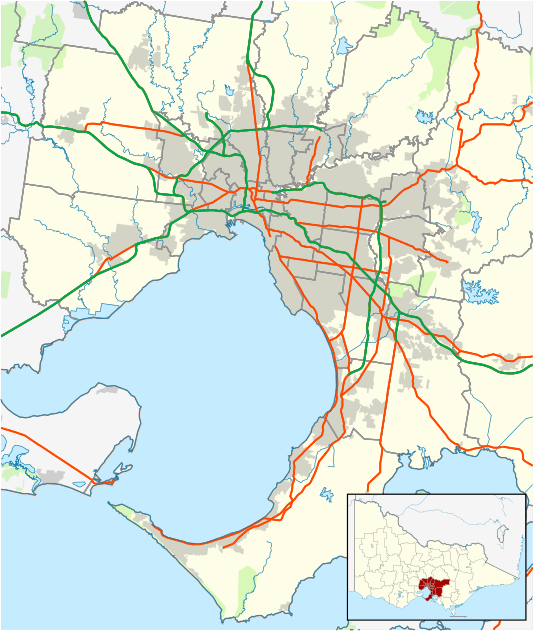Cranbourne South, Victoria
| Cranbourne South Melbourne, Victoria | |||||||||||||
|---|---|---|---|---|---|---|---|---|---|---|---|---|---|
 Cranbourne South | |||||||||||||
| Coordinates | 38°08′56″S 145°15′40″E / 38.149°S 145.261°ECoordinates: 38°08′56″S 145°15′40″E / 38.149°S 145.261°E | ||||||||||||
| Population | 1,684 (2011 census)[1] | ||||||||||||
| • Density | 1,400/km2 (3,630/sq mi) | ||||||||||||
| Postcode(s) | 3977 | ||||||||||||
| Area | 1.2 km2 (0.5 sq mi) | ||||||||||||
| Location |
| ||||||||||||
| LGA(s) | City of Casey | ||||||||||||
| State electorate(s) | |||||||||||||
| Federal Division(s) | Holt | ||||||||||||
| |||||||||||||
Cranbourne South is a rural locality in Melbourne, Victoria, Australia, 45 km south-east of Melbourne's central business district adjacent to the Melbourne urban area. Its local government area is the City of Casey. At the 2011 Census, Cranbourne South had a population of 1,684.[1]
By 2009 the urban growth boundary had moved along Pearcedale and Browns Road, placing a large area of the locality inside the main growth area. Two large scale housing developments, Botanic Ridge and Settlers Run Estate, were established in the area which was excised as the suburb of Botanic Ridge.
The locality has a small primary school, a petrol station and a general store.
References
- ↑ 1.0 1.1 Australian Bureau of Statistics (31 October 2012). "Cranbourne South (State Suburb)". 2011 Census QuickStats. Retrieved 14 December 2014.